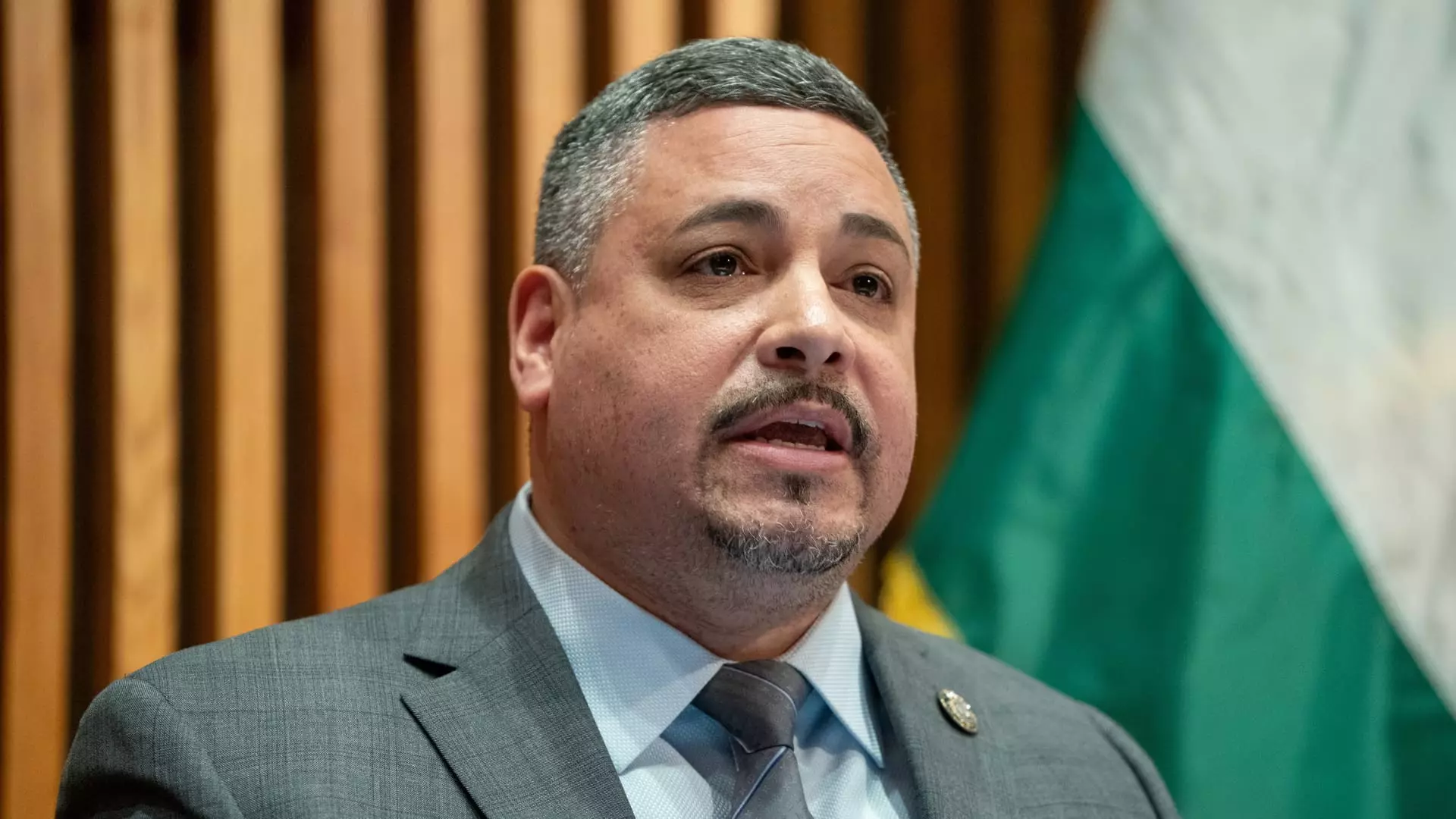The recent resignation of NYPD Commissioner Edward Caban marked a significant moment in the realm of law enforcement, particularly for the New York Police Department, which stands as the largest police force in the United States. Appointed only three months prior, Caban’s swift exit from a role that held historic implications—he was the first Latino to lead the department—indicates a turbulent intersection of leadership, accountability, and public trust. As federal investigations into nightclub enforcement practices unfold, Caban’s decision to step down highlights the complex dynamics at play in municipal governance and law enforcement oversight.
In his resignation memo, Caban articulated a desire to prioritize the needs of the NYPD over personal interests. He emphasized the challenge posed by “noise around recent developments,” suggesting that external factors—specifically, the scrutiny of a federal investigation—compromised his ability to lead effectively. This narrative raises questions about the balancing act required of public officials in maintaining integrity while navigating external pressures, especially when allegations can overshadow professional achievements.
Caban’s rationale not only points to his dedication to the NYPD but also acknowledges the intricate relationship between civic duty and the potential for personal conflicts. His assertion of needing to put officers’ interests first speaks volumes about the culture within the NYPD, where loyalty and reputation are crucial to morale and functionality.
The federal probe primarily investigates alleged corruption tied to nightclub enforcement in New York City, focusing on Caban’s twin brother, who owns a security business for nightlife venues. This relationship raises serious ethical concerns, particularly regarding possible favoritism extended to establishments patronizing Caban’s brother. Reportedly, investigators are evaluating whether Caban’s connections led to preferential treatment from precincts, and whether punishments were meted out against those clubs that did not engage in business with his brother. Such inquiries point to the broader implications of nepotism and favoritism within law enforcement.
Moreover, the involvement of both the U.S. Attorney’s Office for the Southern District of New York and the IRS signals a high level of concern regarding systemic corruption within the NYPD. The potential misuse of power for personal gain undermines public trust and raises alarming questions about police accountability and transparency in the face of organizational culture that might protect individual interests over collective integrity.
Mayor Eric Adams’s acceptance of Caban’s resignation was characterized by a focus on maintaining stability amidst ongoing controversies. His appointment of Tom Donlon as interim commissioner reflects a practical approach to leadership transitions during challenging times; however, it underscores the broader instability within the NYPD. Having cycled through three police commissioners in under three years, the department’s leadership continuity is at risk, potentially impacting law enforcement effectiveness and community relations.
Adams’s response to the press concerning Caban’s alleged restrictions from communicating with federal agencies further complicates the situation. The lack of clarity around such statements only adds fuel to the speculation and concern regarding the internal dynamics of the NYPD and its ongoing partnerships with federal authorities.
The Bigger Picture: Impact on NYPD’s Reputation
Caban’s resignation, marked by a backdrop of federal scrutiny and internal dislocation, represents more than just an individual departure—it reflects critical challenges facing the NYPD itself. As the department grapples with accusations of corruption, the long-term effects on public perception and community trust are at stake. Restoring faith in law enforcement requires a commitment to transparency and accountability that must come not only from leadership but also from the rank-and-file officers.
Ultimately, the situation could serve as a cautionary tale, emphasizing the importance of ethical conduct at every level of policing. The legacy of Caban’s brief tenure will likely be framed not just by his historic appointment but by the circumstances surrounding his departure, which may linger as a topic of discussion in future discourse surrounding police reform and community safety efforts in New York City.


Leave a Reply